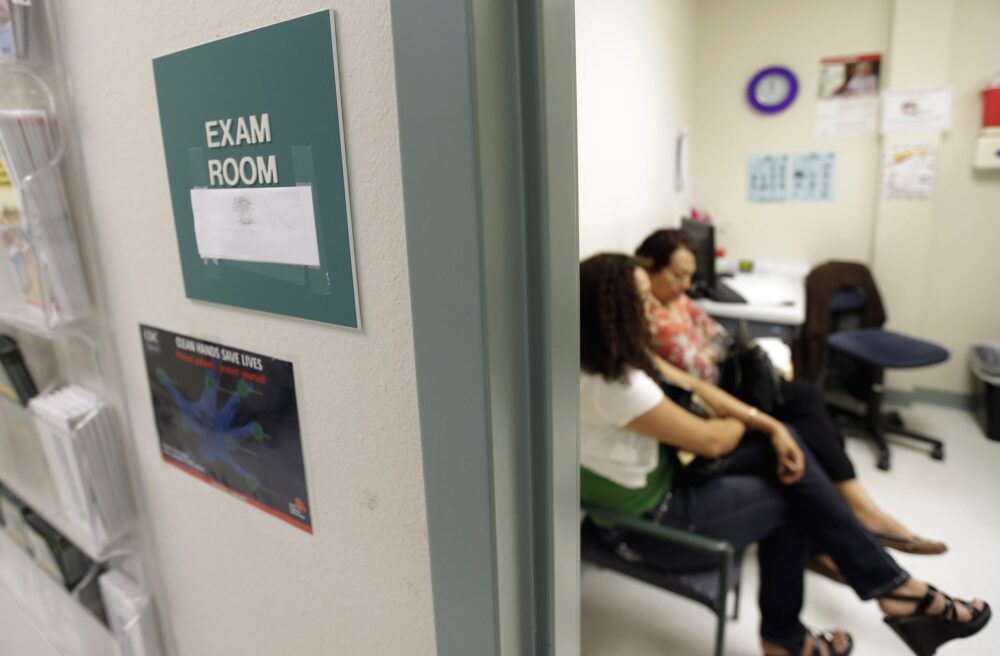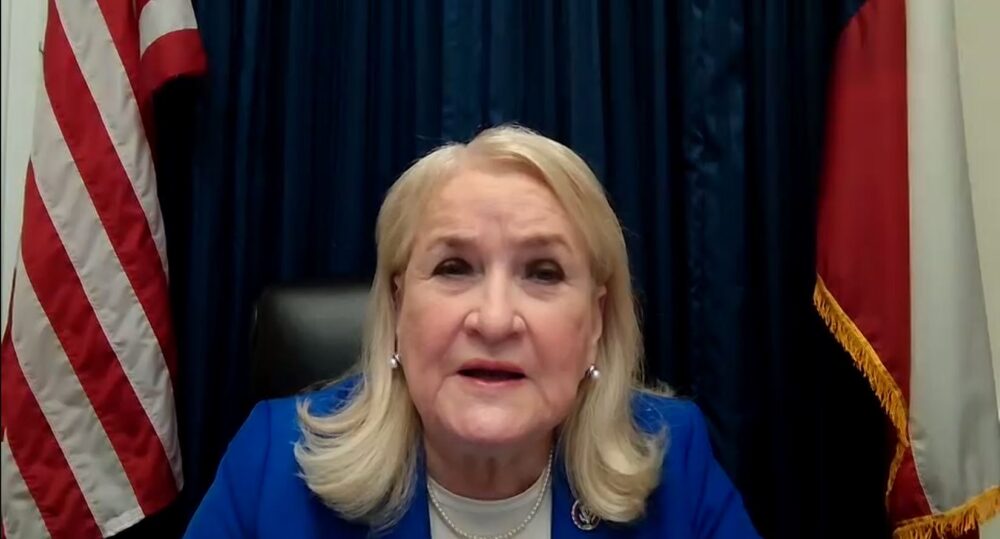
Several Texas Democrats in Congress, including two representing Houston, banded together Wednesday to speak out against a sweeping bill supported by President Donald Trump that would make deep cuts to Medicaid and supplemental food program SNAP.
The two safety-net programs are at risk of losing nearly $1 trillion in fundingunder a bill House Republicans unveiled earlier this month and narrowly passed early Thursday. It also would provide hefty tax cuts for some of the country's wealthiest people while boosting military spending and making changes to federal immigration and energy policies.
The bill, which Trump has lauded as his"big, beautiful bill,"would cut an average of $2,800 in annual taxes for people earning about $217,000 or more per year, according toan analysis by the Tax Policy Center.
Houston Congresswoman Sylvia Garcia warned during a Wednesday news conference that the bill would hurt Texas’ most vulnerable families the most.
"So let that sink in, Republicans are choosing to take food off the table so they can give people with billions of dollars another tax break," Garcia said. "I’ve heard from people across the greater Houston area who are terrified."
The news conference included other Democratic members of Congress from across the state: Al Green of Houston, Lloyd Doggett of Austin, Joaquin Castro of San Antonio and Julie Johnson of Farmers Branch, a suburb of Dallas.
They all said the bill would be detrimental to Texans, especially those who depend on Medicaid for health care and SNAP, or food stamps, for meals.
"This piece of legislation is going to make hard times even harder for the most vulnerable people in our state," Castro said.
More than 4 million people across the state are enrolled in Medicaid or CHIP, the federal health program for children,according to Texas Health and Human Services.As for SNAP, more than 3.6 million Texans rely on it for food.
The House voted to pass the bill, 215-214, on Thursday. It now heads to the Senate.
Republicans have characterized the proposed legislation as part of Trump’s broader goal of reducing waste, fraud and abuse in government spending.
“Today the House has passed generational, truly nation-shaping legislation to reduce spending and permanently lower taxes for families and job creators, secure the border, unleash American energy dominance, restore peace through strength and make government work more efficiently and effectively for all Americans,” House Speaker Mike Johnson (R-Louisiana) said after the vote, according to NPR. “House Democrats voted against all of that.”
"People will die if this becomes law"
Texas is home to the country'shighest uninsured population, according to the Texas Medical Association. The state has both the highest rate of uninsured people and the most number of uninsured residents compared to other states.
Additionally, the number of children in the state without health insurancehas been growing, according to Public Health Watch.
So cuts to Medicaid would be heavily felt by Texans, Doggett said, and have wide-ranging impacts on their health.
RELATED: Houston Congressman Al Green removed from House chamber during Trump’s address to Congress
It's "the primary source of help for opioid abuse," he later added, saying it's also "the primary source for funding for seniors in nursing homes" and maternal care for expecting mothers.
"I believe there is a consistent theme in this one beautiful bill, and that is to rush it through and see as little attention to the ugly details as possible," Doggett said.
Garcia echoed the sentiment, noting that Houston is going to be "hit harder" since it's home to the Texas Medical Center.

"The Texas Medical Center and all our institutions in the Houston region stand to lose probably the most of any other region in the country when it comes to the dollars for medical research, so it will be devastating," she said.
Garcia's district stretches from Aldine to Cloverleaf and Pasadena, and she said nearly 176,000 of her constituents are enrolled in Medicaid.
"People will die if this bill becomes law,” she said. “They will die."
"Millions of children will know that same pain"
Earlier this year, Texas Gov. Greg Abbottopted the state outof participating in a federal summer lunch program for low-income families.
Texas is one of 15 states not participating in the program, and Garcia said that's another reason threats to SNAP funding would limit food access for Texans.
"Now we may have the additional issue of more people without the food programs," she said.
Garcia said she remembers "fearing summer" when she was younger because she didn't have access to school lunches, and that "millions of children will know that same pain," if the Trump-supported bill passes.
Grocery priceshave risen in the last five years, according to the U.S. Department of Agriculture, and are expected to increase by 3.5% in 2025.
"Prices are going up and yet benefits are going down," Castro said. "The problem we have is that when prices are going up and people can afford less, that’s when they need their government — the government they’re paying taxes to to help them out a little bit."
"This is going to accelerate the death of many rural communities"
The impacts of the bill will be magnified in rural communities, the Democratic members of Congress said.
Castro emphasized that cuts to Medicaid are going to heavily affect funding at hospitals in rural counties. He said they already have been struggling to survive because "since 2005, over 100 rural hospitals have closed in Texas."
"This is going to help dismantle the infrastructure of rural life in Texas," Castro said.
He noted that Abbott recently signeda school voucher-like program into law, which will allow Texas parents to use public funds for private education costs, which Castro said is "going to damage public schools in rural areas" because "in many places, the public school is the only choice for students."
Doggett echoed that sentiment, adding there are multiple ways Texans living in rural areas are getting the brunt of several policy changes and proposals.
"This is going to accelerate the death of many rural communities in Texas," he said. "Because it’s going to kill some of the public schools, kill some of the hospitals, and the Trump administration has already basically done away with the effort to extend broadband and internet service to rural communities."
Copyright 2025 Houston Public Media News 88.7

